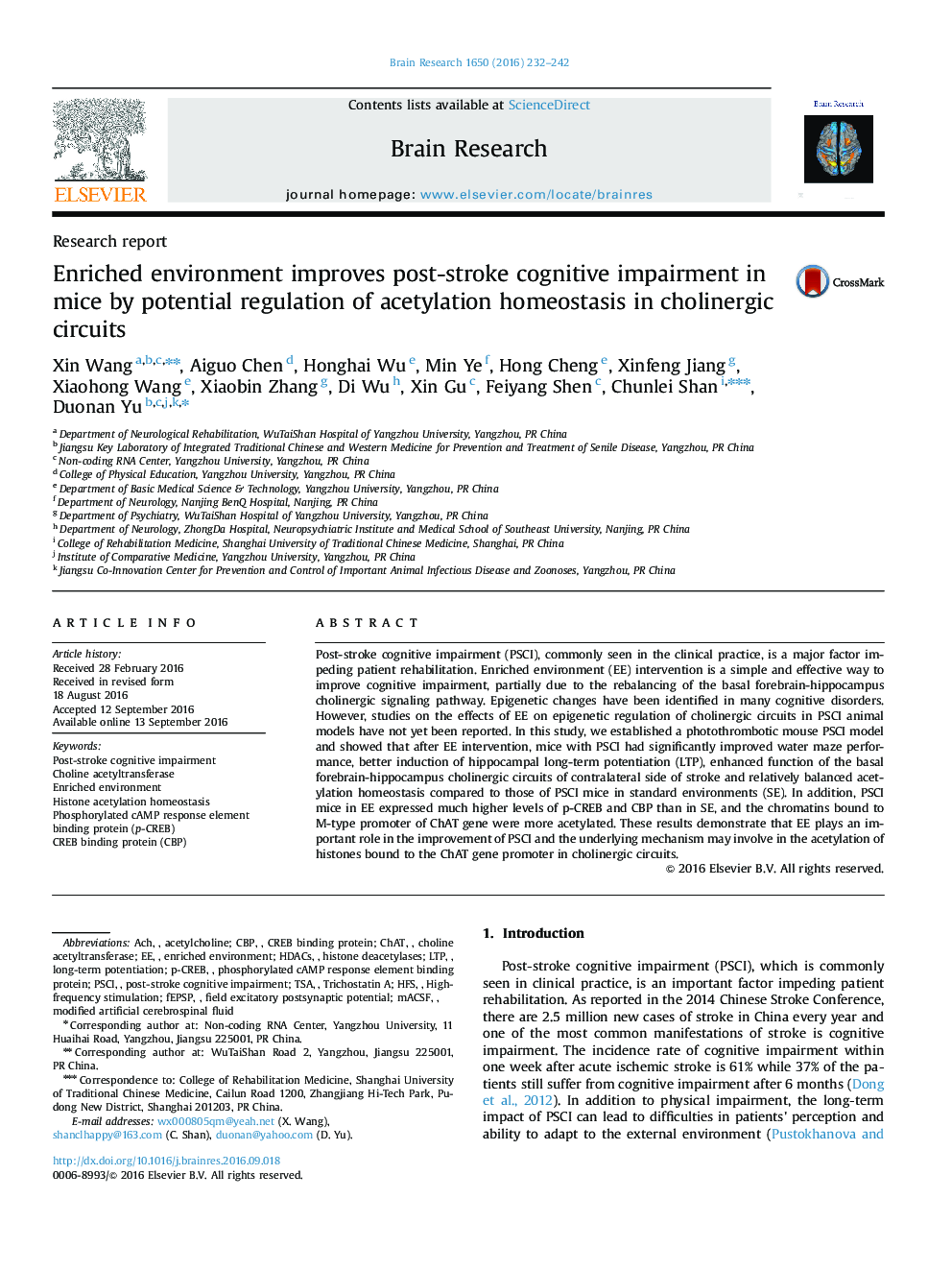| Article ID | Journal | Published Year | Pages | File Type |
|---|---|---|---|---|
| 6262258 | Brain Research | 2016 | 11 Pages |
â¢Enriched environment (EE) improves the cognitive function in post stroke mice.â¢EE increases acetylation of chromatins bound to ChAT gene promoter in cholinergic circuits in post-stroke mice.â¢EE elevates the protein levels of p-CREB and CBP in post-stroke mice.
Post-stroke cognitive impairment (PSCI), commonly seen in the clinical practice, is a major factor impeding patient rehabilitation. Enriched environment (EE) intervention is a simple and effective way to improve cognitive impairment, partially due to the rebalancing of the basal forebrain-hippocampus cholinergic signaling pathway. Epigenetic changes have been identified in many cognitive disorders. However, studies on the effects of EE on epigenetic regulation of cholinergic circuits in PSCI animal models have not yet been reported. In this study, we established a photothrombotic mouse PSCI model and showed that after EE intervention, mice with PSCI had significantly improved water maze performance, better induction of hippocampal long-term potentiation (LTP), enhanced function of the basal forebrain-hippocampus cholinergic circuits of contralateral side of stroke and relatively balanced acetylation homeostasis compared to those of PSCI mice in standard environments (SE). In addition, PSCI mice in EE expressed much higher levels of p-CREB and CBP than in SE, and the chromatins bound to M-type promoter of ChAT gene were more acetylated. These results demonstrate that EE plays an important role in the improvement of PSCI and the underlying mechanism may involve in the acetylation of histones bound to the ChAT gene promoter in cholinergic circuits.
